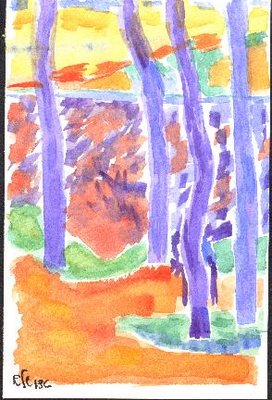
American Life in Poetry: Column 073
BY TED KOOSER, U.S. POET LAUREATE, 2004-2006
Those of us who have planted trees and shrubs know well that moment when the last spade full of earth is packed around the root ball and patted or stamped into place and we stand back and wish the young plant good fortune. Here the poet Roy Scheele offers us a few well-chosen words we can use the next time.
Planting a Dogwood
Tree, we take leave of you; you're on your own.
Put down your taproot with its probing hairs
that sluice the darkness and create unseen
the tree that mirrors you below the ground.
For when we plant a tree, two trees take root:
the one that lifts its leaves into the air,
and the inverted one that cleaves the soil
to find the runnel's sweet, dull silver trace
and spreads not up but down, each drop a leaf
in the eternal blackness of that sky.
The leaves you show uncurl like tiny fists
and bear small button blossoms, greenish white,
that quicken you. Now put your roots down deep;
draw light from shadow, break in on earth's sleep.
Reprinted from "From the Ground Up," Lone Willow Press, Omaha, NE, 2000, by permission of the author, whose most recent book is "A Far Allegiance," forthcoming from The Backwaters Press. Poem copyright (c) 2000 by Roy Scheele. This weekly column is supported by The Poetry Foundation, The Library of Congress, and the Department of English at the University of Nebraska-Lincoln. This column does not accept unsolicited poetry.
******************************






